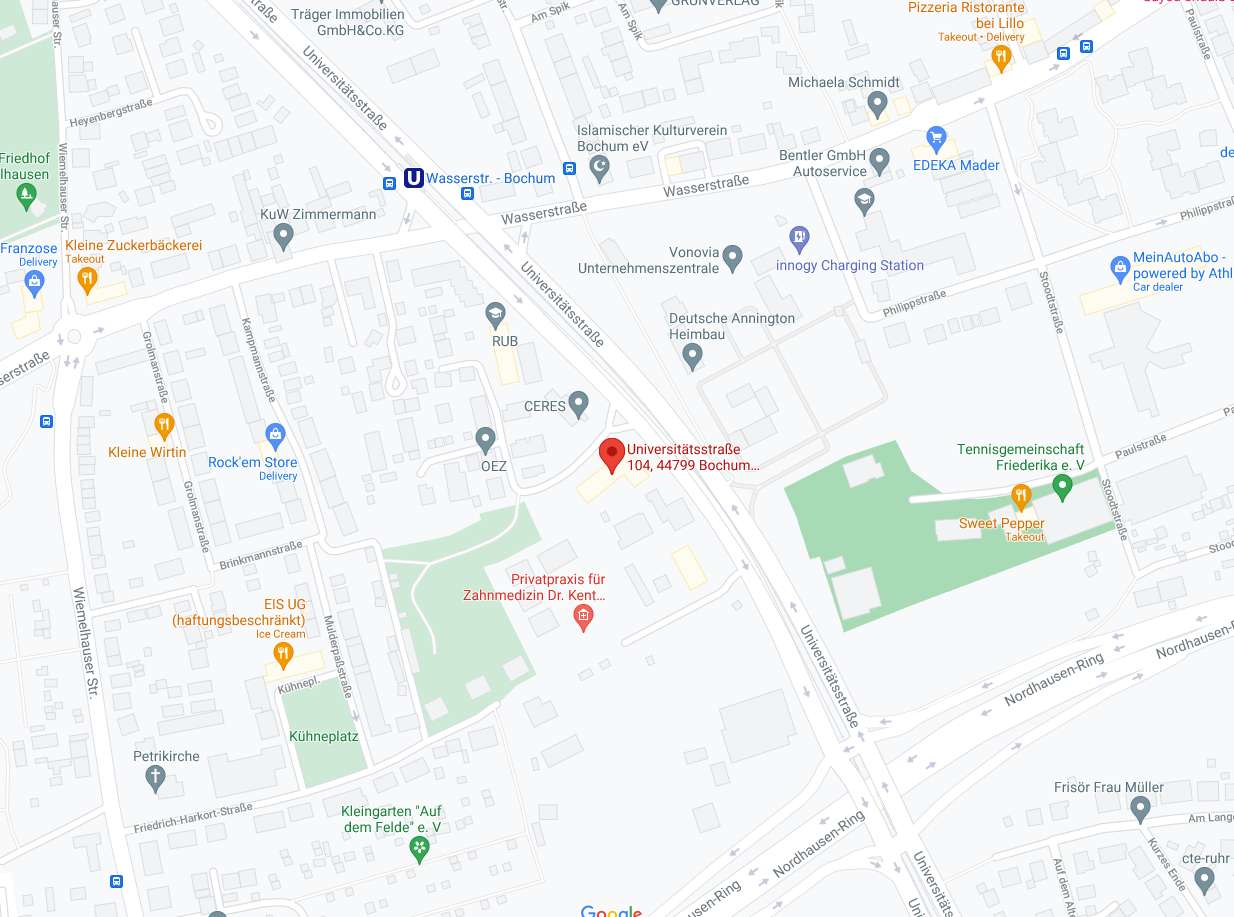Future perfect und future progressive
1. Future perfect
1.1 Bildung
- Das future perfect wird mit will + have und dem Partizip Perfekt gebildet.
- Bei regelmäßigen Verben wird an das Verb –ed angehängt.
- Bei unregelmäßigen Verben muss die besondere Form gelernt werden. In der Tabelle der unregelmäßigen Verben entspricht es der 3. Spalte/ Form.
- Wie beim will-future wird won’t für die Verneinung verwendet. In der 1sten Person Singular/Plural können ebenfalls shall/shan’t verwendet werden.
|
will + have + past participle |
Beispiele:
Sarah will have finished School next month.
Peter won’t have left for his holidays by Friday.
- Endet der Infinitiv auf ein stummes –e, entfällt dieses in der ed-Form.
Beispiel:
close - closed - Nach einem kurzen, betonten Vokal wird ein einfacher Endkonsonant verdoppelt.
Beispiel:
grab – grabbed - Endet der Infinitiv auf einen Konsonanten + y, wird –y zu –i.
- Endet das Verb auf einen Vokal + y, bleibt es unverändert.
Beispiele:
hurry – hurried
enjoy – enjoyed
1.2 Gebrauch
- Das future perfect wird verwendet, wenn man ausdrücken möchte, dass etwas zu einem bestimmten Zeitpunkt in der Zukunft abgeschlossen sein wird.
Beispiele:
I think John will have left when we arrive.
Everybody will have heard the news by tomorrow.
Is Susan still working? – She will be finished in one hour. - Signalwörter für das future perfect:
|
by (then/ tomorrow, April…) |
bis (dann/ morgen/ April…) |
2. Future progressive
2.1 Bildung
- Zur Bildung des future progressive verwendet man will+ be und hängt an den Infinitiv des Verbs die Endung –ing.
- Wie beim will-future wird won’t für die Verneinung verwendet. In der 1sten Person Singular/Plural können ebenfalls shall/shan’t verwendet werden.
|
will + be + present participle |
Beispiele:
We will be meeting all of his old friends at the wedding.
Shall we be meeting his family, too?
I’m afraid most of the family won’t be attending the wedding.
- Wenn der Infinitiv mit einem stummen –e endet, fällt dieses –e weg.
Beispiel:
shine - shining - Nach einem kurzen, betonten Vokal wird ein einfacher Endkonsonant verdoppelt.
Beispiel:
run – running - Endet ein Verb auf –ie endet das present participle auf –y.
- Bei Verben, die auf –y enden, ändert sich dagegen nichts.
Beispiele:
lie – lying
try - trying
2.2 Gebrauch
- Das future progressive wird verwendet, wenn
- man Handlungen ausdrücken möchte, die zu einem zukünftigen Zeitpunkt im Verlauf sein werden. Sie können vor diesem Zeitpunkt begonnen haben und noch andauern.
- man sagen möchte, dass etwas geschehen wird, weil dies üblich ist.
- man sagen möchte, dass etwas sowieso geschieht, ohne dass es genau geplant ist.
Beispiele:
This time tomorrow I will be lying on the beach.
On Christmas Day Marilyn will be visiting her grandma as usual.
Will you be going to Mary today? – If so, tell her I said hello.
3. Übungsaufgaben
3.1 Mandy is dreaming about her future. Use the future perfect to express what will have happened to Mandy in the next years.
a) Perhaps by then/ find/ new friends
b) Anyway/ by then/ write my first novels
c) Two years after that/ famous publisher/ publish them
d) Four years later/ write two new novels
e) By then they/ become best-sellers
f) People/ translate my novels into Spanish and French
g) Three years later/ win prizes in many different countries
h) By the time I’m forty/ become famous
i) By then/ not spend all my money/ and/ not become a lonely alcoholic.
3.2. Complete the sentences using future progressive. Tim has a new job in a restaurant. He tells his friends what he will be doing next week.
Example: learn to make soups
“I’ll be learning to make soups during the week.”
a) work with the cooks
b) not order food
c) learn to make timetables
d) not work at night
e) learn how to clean properly
3.3 Future perfect or future progressive?
a) On New Years Eve Astrid ……… (not attend) any parties, as usual.
b) ……… you ……… (go) to the dentist next week? – I’m afraid I’ll have to.
c) She ……… (not lose) 10 kilos by the time she gets married.
d) I think John ……… (leave) for work when I get home.
e) Everybody ……… (forget) about this embarrassing story by the time you finish High School.
4. Lösungen zu den Übungsaufgaben
zu 3.1
a) Perhaps by then I will have found new friends.
b) Anyway, by then I will have written my first novels.
c) Two years after that a famous publisher will have published them.
d) Four years later I will have written two new novels.
e) By then they will have become best-sellers.
f) People will have translated my novels into Spanish and French.
g) Three years later I will have won prizes in many different countries.
h) By the time I’m forty I will have become famous.
i) By then I won’t have spent all my money and won’t have become a lonely alcoholic.
Zu 3.2
“I will be working with the cooks.”
“I won’t be ordering food.”
“I will be learning to make timetables.”
“I won’t be working at night.”
“I will be learning how to clean properly.”
Zu 3.3
a) On New Years Eve Astrid won’t be attending any parties, as usual.
b) Will you be going to the dentist next week? – I’m afraid I’ll have to.
c) She won’t have lost 10 kilos by the time she gets married.
d) I think John will have left for work when I get home.
e) Everybody will have forgotten about this embarrassing story by the time you finish High School.
Fragen & Antworten
Ja, bei tutoria bieten wir die Möglichkeit eines Probeunterrichts an, um sicherzustellen, dass unsere Nachhilfeleistungen den individuellen Bedürfnissen Ihres Kindes entsprechen. Der Probeunterricht ermöglicht es uns, den Lernbedarf Ihres Kindes besser zu verstehen und einen passenden Nachhilfelehrer auszuwählen. In diesem ersten Treffen kann Ihr Kind den Nachhilfelehrer kennenlernen, Fragen stellen und erste Lernerfolge erzielen.
Unsere Nachhilfestunden dauern in der Regel 2x 45 Minuten. Diese Zeitspanne ermöglicht eine effiziente und konzentrierte Lernsituation, die es unseren qualifizierten Nachhilfelehrern ermöglicht, den Lehrstoff optimal zu vermitteln und individuelle Fragen zu beantworten.
Wir verstehen, wie wichtig eine vertraute Umgebung für den Lernprozess ist, daher findet bei tutoria die Nachhilfe immer bei Ihnen zu Hause statt. Unsere qualifizierten Nachhilfelehrer kommen direkt zu Ihnen nach Hause, um eine Lernumgebung zu schaffen, in der Ihr Kind sich wohl fühlt und sich gut konzentrieren kann.
Die Kosten für eine Nachhilfestunde bei tutoria variieren je nach der gewünschten Dauer und Laufzeit der Nachhilfe. Der Preis für eine 45 Minuten Einheit beginnt ab 19,90€. Wir sind stolz darauf, eine faire Preisgestaltung anzubieten, die es unseren Schülern und ihren Familien ermöglicht, die für sie passende Nachhilfeleistung zu finden.
Bei tutoria sind unsere Nachhilfelehrer sorgfältig ausgewählt und verfügen über umfassende Qualifikationen, um sicherzustellen, dass Ihr Kind die bestmögliche Unterstützung erhält. Unsere Nachhilfelehrer sind erfahren darin, den Lehrstoff effektiv zu vermitteln und auf die individuellen Bedürfnisse der Schüler einzugehen. Außerdem sind sie Experten in ihren Fachgebieten und haben nachweislich umfassende Kenntnisse in den relevanten Schulfächern. Sie sind in der Lage, den Lehrstoff verständlich zu erklären und Lernstrategien zu vermitteln, die zu nachhaltigem Erfolg führen.



























